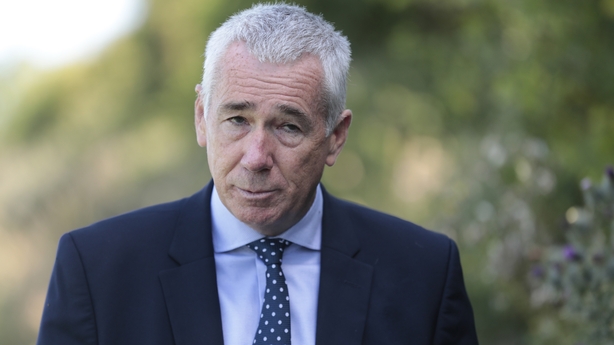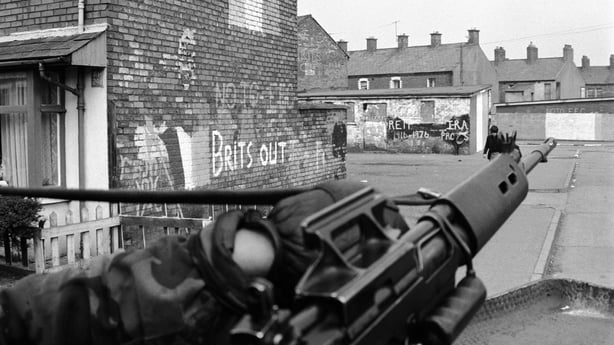The stigma of informer has run deep in the Irish psyche for centuries.
Some of the families of those murdered by British Army spy Freddie Scappaticci and the IRA’s internal security unit suffer that to this day.
Many have used the services of victims' group Wave as they have engaged with the Kenova Inquiry detectives.
Its director Sandra Peake has come to know them well.
"There’s no doubt these were stigmatised deaths," she says.
"Some families were isolated within their own communities. Other families had ongoing threats or taunts.

"Some families are still being taunted today, still being winked at and sneered at and smiled at by the people who took their loved ones."
In recent weeks, the families of the dead have received letters setting out the detailed reasons why suspects in their loved one's murder will not face prosecution.
Families started with low expectations, and the fact that an English policeman Jon Boutcher had been brought in to run the inquiry, provided little reassurance.
The Kenova families were often republicans, some had never even had a policeman at the door to formally tell them their loved one was dead.
However, Ms Peake says the Kenova team ensured the families were kept at the heart of things as the investigation progressed.
It helped build confidence, it may also have raised expectations about the potential for convictions which was proved elusive.
Solicitor Kevin Winters of KRW law represents many of the Kenova families.
He recognises the stigma that Ms Peake speaks of and says it has left these families among the "last in the queue in terms of justice and truth recovery".
He says there is now a "quiet expectation" that the Kenova report will finally deliver for them.
Delivery means different things to different families. There will be a range of emotions about the inability to pursue convictions.
Some will be deeply disappointed.
In other cases, Mr Winters says, the families may already know who pulled the trigger.

Their focus is on a much more forensic question.
The report being issued today is a high-level thematic one, setting out in broad terms what investigators discovered about the role of Stakeknife, Freddie Scappaticci, and his handlers in killings and other crimes.
However, in the coming weeks, families will receive detailed, personalised reports into the killings of their loved ones.
They will detail their final hours and the circumstances of the executions.
Families want to know whether the British State had intelligence about who was holding their relatives, where they were being detained and whether it knew they were to be killed.
With at least one agent at the heart of the IRA unit responsible army handlers must have been getting that kind of critical, time-sensitive intelligence.
The question then becomes - what, if anything, did they do with it?
"What happened in the final days of a person who was taken away to be killed and to what extent the intelligence agencies were alive to those last moments, how much they knew about it and what steps if any, could they have taken to intervene and save those lives?" is the crux of the story says Kevin Winters.
"If that sort of information is given to families and it’s made clear in precise terms that a family member was killed and that the intelligence services were monitoring or had access to basic information which could have been acted on, but wasn't acted on, well that is a serious failing on the part of the state and is tantamount to conspiracy to murder."
£40 million has been spent since Operation Kenova was established back in 2016.
With no prosecutions, the inquiry has effectively become a truth recovery process.
Sandra Peake of Wave insists it has been worthwhile.
She says had the same investigative effort been made at the time of the killings people may well have been held accountable.
For her, the focus now should not be on the cost of the inquiry and the lack of prosecutions, but on the fact that families have finally had a proper, victim-centred process.
She says: "When you talk to families and ask them if they’re glad they’ve engaged the answer is absolutely, was it painful? 'Absolutely'. Has it been hard going? 'Absolutely'. Are you glad you did it? 'Absolutely'."







